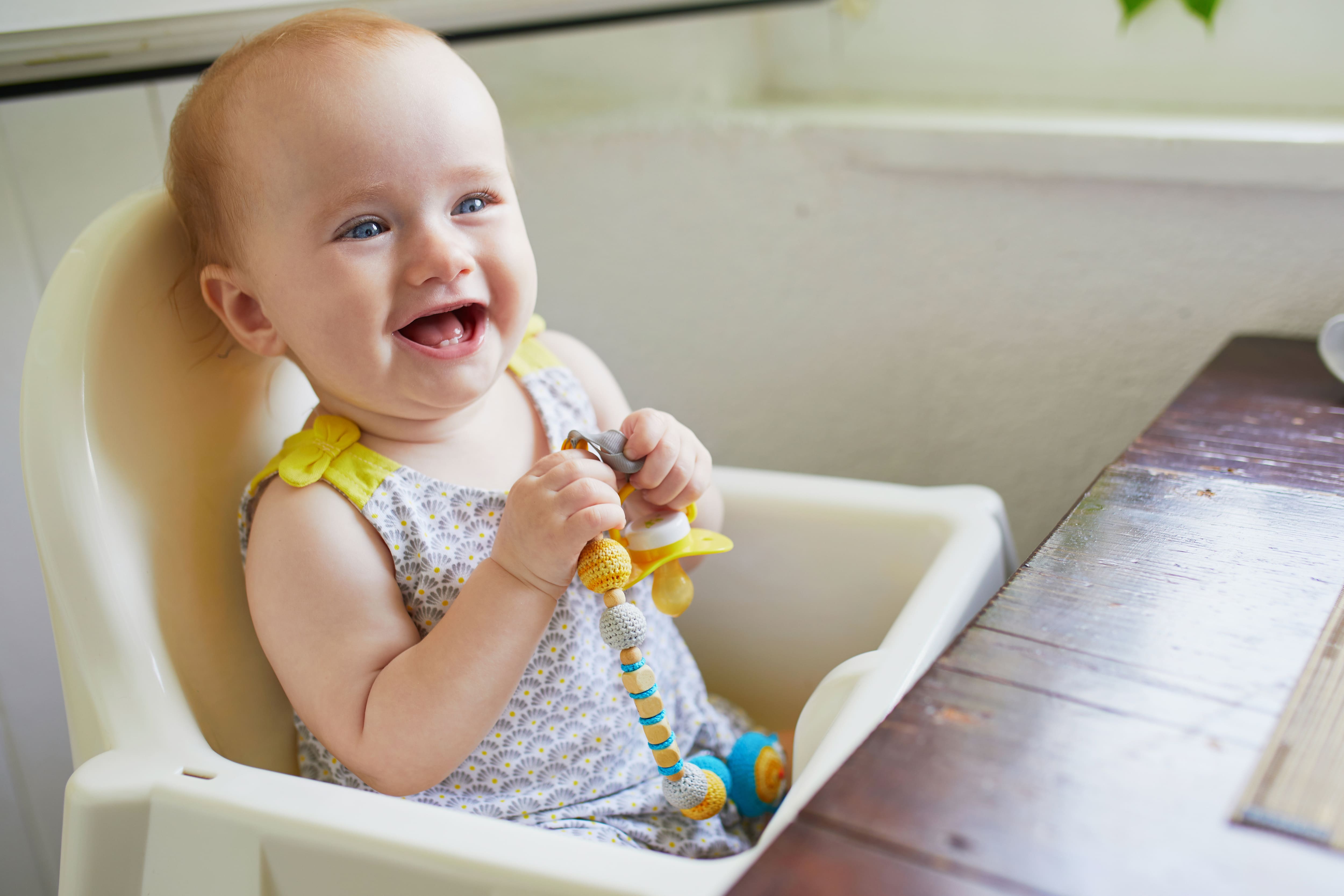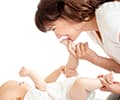When Should I Expect My Baby to Smile and Laugh for the First Time?
While your baby will make noises and some facial interactions from birth, a social smile will begin to develop around three months of age. By four months, your baby will start smiling spontaneously at people. Once your baby masters smiling and can recognize the positive reactions, sound effects like cooing will begin. Cooing will turn into giggles, and soon after, you will likely hear your baby's first laugh.
How Can I Get My Baby to Smile and Laugh?
Babies won't laugh until they are ready, so while you can and should encourage laughter, don't be discouraged if it isn't happening as soon as you'd hoped.
Try the following to get that first giggle or laugh:
- Copy your baby's sounds
- Act excited and smile when your baby smiles or makes sounds
- Pay close attention to what your baby likes so you can repeat it
- Play games such a peek-a-boo
- Give age-appropriate toys to your baby, such as rattles and picture books
- Put toys near your baby, so they can reach for them or kick them
What if My Baby Smiles a Lot but Doesn't Laugh?
If your baby smiles spontaneously but doesn't seem to want to laugh, you might worry that you're doing something wrong. Don't forget that every baby is born with different innate temperaments, which could influence how much your baby wants to laugh.
That said, the CDC cautions that if your baby hasn't laughed or doesn't laugh regularly by age six months old, you should talk to your baby's doctor or nurse to ensure that this isn't a sign of a possible developmental delay or hearing impairment.
The first few months of your child's life is an exciting time, and each milestone brings up a whole range of emotions for you as a parent, from your baby's first words to the eruption of their first teeth. Waiting for your baby's first laugh can be frustrating, but remember, the wait is worth it!
Oral Care Center articles are reviewed by an oral health medical professional. This information is for educational purposes only. This content is not intended to be a substitute for professional medical advice, diagnosis or treatment. Always seek the advice of your dentist, physician or other qualified healthcare provider.
ORAL HEALTH QUIZ
What's behind your smile?
Take our Oral Health assessment to get the most from your oral care routine
ORAL HEALTH QUIZ
What's behind your smile?
Take our Oral Health assessment to get the most from your oral care routine
Join Us
Get the best of your oral health routine and take it to the next level with expert advice, recommendations, products and solutions and special offers.
Join Us
Get the best of your oral health routine and take it to the next level with expert advice, recommendations, products and solutions and special offers.















